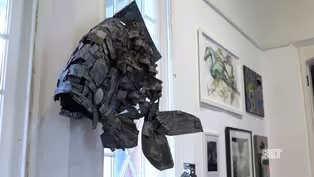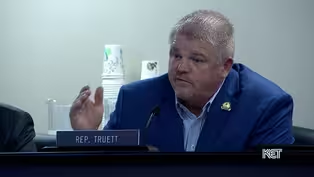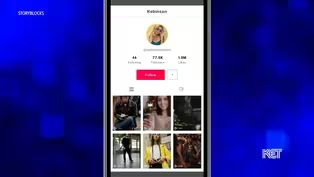
Breast Cancer Awareness Month
Clip: Season 3 Episode 99 | 2m 54sVideo has Closed Captions
How to reduce your risk of breast cancer.
October is Breast Cancer Awareness Month. A surgical oncologist from the University of Kentucky explains how to reduce your risk of breast cancer and what signs to look for.
Problems playing video? | Closed Captioning Feedback
Problems playing video? | Closed Captioning Feedback
Kentucky Edition is a local public television program presented by KET

Breast Cancer Awareness Month
Clip: Season 3 Episode 99 | 2m 54sVideo has Closed Captions
October is Breast Cancer Awareness Month. A surgical oncologist from the University of Kentucky explains how to reduce your risk of breast cancer and what signs to look for.
Problems playing video? | Closed Captioning Feedback
How to Watch Kentucky Edition
Kentucky Edition is available to stream on pbs.org and the free PBS App, available on iPhone, Apple TV, Android TV, Android smartphones, Amazon Fire TV, Amazon Fire Tablet, Roku, Samsung Smart TV, and Vizio.
Providing Support for PBS.org
Learn Moreabout PBS online sponsorshipOctober is Breast Cancer Awareness Month, and Kentucky Edition talked with a surgical oncologist from the University of Kentucky.
She told us how to reduce your risk of breast cancer and what signs to look for.
More on that in tonight's look at medical news.
Knowledge is power.
When women turn 40, assuming they're of average risk.
They should be getting referred to get mammography.
We know that we can catch breast cancers earlier and improve survival from breast cancer if we catch them at an earlier stage.
We use X-ray to look at the breast in different views, kind of compressing it in different ways to see if there are any any findings that stand out to us that require further investigation.
They also do 3-D reconstructions of those X-rays so that we can get a really magnified view of any lesions or masses in the breast.
We look for calcifications and we look for distortions of the tissue.
I would kind of divide breast cancer risk or really risk for anything into modifiable risk factors, things that we can take power of and control, and then those non modifiable risk factors, the things that we really have no control over.
So are non modifiable risk factors or things like our if we have a genetic mutation, there's nothing unfortunately that we can do to stop that.
But on the modifiable category, there are things like lifestyle modifications.
We know that exercise is very good for helping with breast cancer, risk reduction, having a healthy BMI, not smoking, and just kind of maximize your health.
The reason why doing a self check on a regular interval period once a month ideally and having that knowledge of what your breast looks like and what it feels like is very important because then you know your baseline and then you know when something changes.
And so things that you would be looking for include, like you said, a lump, but also thickening of the skin inversion of the nipple, a change in texture of the area or the skin redness of the skin or tenderness of a of an area of your breast.
Sometimes nipple discharge can be associated with the cancer.
And so these are all things to really keep in mind.
Dr. Winer says breast cancer primarily affects women, but can also affect men because they have breast tissue.
Breast cancer in men only represents 1% of the cases.
Video has Closed Captions
Clip: S3 Ep99 | 3m 50s | PRHBTN opens annual art gallery in Lexington. (3m 50s)
Lawmakers React to State Test Scores
Video has Closed Captions
Clip: S3 Ep99 | 2m 14s | A state lawmaker who is also a principal reacts to Kentucky's standardized test scores. (2m 14s)
Lincoln Dinner in Bowling Green
Video has Closed Captions
Clip: S3 Ep99 | 3m 27s | Sen. Rand Paul along with a number of state lawmakers attended the Southern Kentucky Lincoln Dinner. (3m 27s)
Video has Closed Captions
Clip: S3 Ep99 | 7m 54s | Renee Shaw talks with NPR's Ryland Barton about the political stories making news in Kentucky. (7m 54s)
Providing Support for PBS.org
Learn Moreabout PBS online sponsorship
- News and Public Affairs

Top journalists deliver compelling original analysis of the hour's headlines.

- News and Public Affairs

FRONTLINE is investigative journalism that questions, explains and changes our world.












Support for PBS provided by:
Kentucky Edition is a local public television program presented by KET



